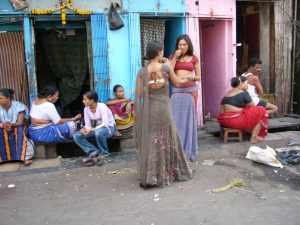On May 19, the Supreme Court of India recognized prostitution as a profession and declared that prostitutes are entitled to dignity and constitutional rights.
Prostitution is not illegal in India, but certain activities related to prostitution may be considered illegal. For example, the Indian Penal Code the following activities are punishable by law — pimping, renting out property for running brothels, abducting or inducing a person for prostitution
According to the Indian Penal Code (IPC), prostitution in its broader sense is not really illegal per se, but there are certain activities which constitute a major part of prostitution that are punishable under certain provisions of the act, which are: Soliciting prostitution services in public places. carrying out prostitution activities in hotels, indulging in prostitution by arranging for a sex worker, arrangement of a sexual act with a customer.
The changes anticipated by the India Supreme Court’s declaration supporting the constitutional rights of prostitutes may assist prostitutes who have been a victim of crime to more freely assert their legal rights. In the arrest or prosecution of a brothel owner, or the prosecution of a procurer or pimp, the prostitute may be protected from prosecution. Prostitutes who are victims of sexual assault will be given all of the same services as a survivor of sexual assault, including immediate medical attention.
Thailand criminal law is similar in that prostitution in Thailand is not in itself illegal, but many of the activities associated with it are illegal. For example, The Thailand criminal law Section 286 criminalizes “pimping” or profiting from their earnings of a prostitute as follows: Any person, being over sixteen years of age, subsists on the earning of a prostitute, even it is some part of her incomes, shall be punished with imprisonment of seven to twenty years and fined of fourteen thousand to forty thousand Baht, or imprisonment for life.
Photo by philipjbigg


{ 0 comments… add one now }